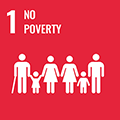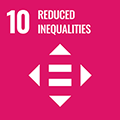Most people have presbyopia, age-related decline in near vision, by age 50, but no trials had assessed workplace effects of correcting it until PROSPER (PROductivity Study of Presbyopia Elimination in Rural-dwellers) showed that Indian tea pickers randomly assigned to receive glasses correcting near vision picked 22% more tea per day than controls, with a glasses delivery cost of only US$10/participant.
This productivity impact is greater than that reported in any previous health intervention trial. The findings have led to programs providing glasses in Assam India and wider adoption of the Clear Vision Workspace model (as tested in PROSPER) by tea, coffee, automotive and textile sectors in India and Africa, leading to glasses delivery for 750,000 workers and consequent improvements in their productivity and well-being.
Research Challenge
Improving eyecare standards for Workers
Presbyopia is the almost-universal decline in unaided near vision associated with ageing. Beginning at age 40 and affecting nearly all by 50, presbyopia’s impact is felt at the heart of the working years.
The number of people with presbyopia globally exceeds 1 billion, making it the world’s most common cause of vision impairment. However, despite the existence of randomised trials on other health interventions to improve work productivity, there were none targeting presbyopia until the 2018 publication in Lancet Global Health of the PROSPER (PROductivity Study of Presbyopia Elimination in Rural-dwellers) trial among tea-pickers in Assam, India. The trial was led by Professor Congdon from Queen’s University Belfast, in close collaboration with QUB colleagues and local investigators.
Our Approach
The first randomised trial exploring the link between clear vision and productivity
PROSPER was carried out in collaboration with three leading global eye health NGOs (Orbis International, Clearly and VisionSpring) and Amalgamated Plantation Private Ltd. It studied the effect of providing glasses to correct presbyopia among 751 mostly female tea workers aged ≥40 in India, who were recruited during July 2017.
The participants were randomly allocated to receive free glasses to correct their refractive error immediately or to a control group who received glasses after an 11-week evaluation period.
The trial found a significantly higher increase in mean productivity in the intervention group over controls: a difference of >5 kg/day or 22% in tea picked daily, which rose to >30% among workers over 50 years. This greater impact among older participants in this age-related condition supports the biological plausibility of the effect. The total delivery cost was low (US$10.20/participant), acceptance was high (85% in the intervention group wore their glasses by closeout) and presbyopia was common (>50%) among workers aged ≥40 years, highlighting the minimal expense, good acceptability and wide applicability of this intervention.
‘In view of high bang for the buck from corrective glasses, intervening on a vast scale to attack the problem should be high up on the government’s “to do list”.
- The Economic Times of India
What impact did it make?
PROSPER – A Tipping point for Uptake and Impact
Before PROSPER, some studies had suggested that correction of presbyopia could improve performance of various economically important tasks, including reading, writing, cooking, use of tools and mobile phones, sewing, weeding, and recognising money. However, none of these studies were randomized trials and they had had little impact. The improved rigour and reliability arising from PROSPER’s randomized, controlled design added considerable strength to this evidence base.
It is the first ever randomised trial to explore the link between clear vision and productivity, representing a significant step forward in understanding of the role of good vision in achieving the SDGs. The trial was nested within and supported NGO VisionSpring’s Clear Vision Workplace which is seeking to increase workers’ use of eyeglasses in industries that are advancing economic growth and is thus aligned with VISION 2020’s Right to Sight initiative for the elimination of avoidable blindness.
When the PROSPER findings were published, a spokesperson from Amalgamated Plantations Private Ltd, owners of the plantation where the trial took place described the intervention as ‘a turning point in awareness of the impact of clear vision on our tea garden’s wellbeing and productivity’, noting they ‘will fully support the policy recommendations that emerge as a result’
The results of PROSPER provided the evidence for including eyeglasses in the ATscale2030 initiative to scale up global access to five key assistive technologies, funded by governments of US, UK and Kenya as well as UNICEF and WHO.
Following the 2019 UN General Assembly on Universal Health Care and in preparation for the 2021 UN General Assembly, a group of NGOs and UN ambassadors are working to have eyecare recognized for its important impact on the SDGs. The PROSPER findings are specifically referenced in the draft resolution as validating the impact of eye care service on productivity and the potential to eradicate poverty.
The PROSPER trial features in the report of the Lancet Global Eye Health Commission. This report is among the highest-profile statements of the international vision community about plans to reduce the burden of global vision impairment over the next decade.
PROSPER was cited as the evidence base for recommendations to improve access to eyeglasses in the report delivered by the Clinton Health Access Initiative, which works with partners to strengthen the capabilities of governments and the private sector to create and sustain high-quality health systems to save lives and reduce the burden of disease in Lower- and Middle-Income Countries.
Our impact
Impact related to the UN Sustainable Development Goals
Learn more about Queen’s University’s commitment to nurturing a culture of sustainability and achieving the Sustainable Development Goals (SDGs) through research and education.











